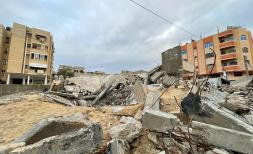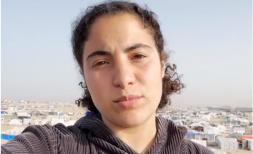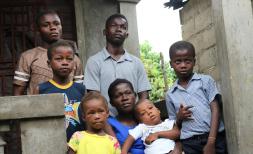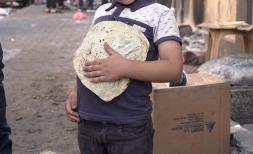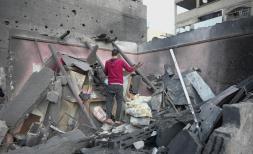LEARNING IS A LIFELINE - THE G20 MUST PROTECT EDUCATION FOR ALL AFGHAN CHILDREN
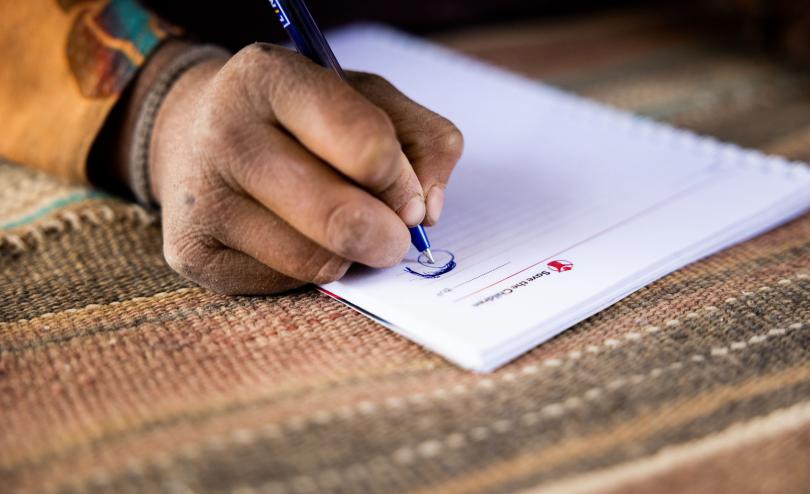
Last month, the de-facto authorities in Afghanistan announced that secondary schools would be reopening – but only for boys and with male teachers. Whilst the Taliban has stated that this is a temporary measure until they have developed a policy that will ensure schools are safe for girls, it is unclear when girls will be able to return.
What is clear is that girls’ education cannot wait. School not only provides a place to learn – it can provide a safe space for children to play, eat a healthy meal, and access psychosocial support.
No one understands the risks posed by the current restrictions better than the Afghan girls who are currently prevented from accessing education. A 16-year-old from Afghanistan told us:
“What will be my future? Maybe I couldn’t continue my education and stay home. Education is a chance for me to change the way we live I can change my life and financially support my family.”
Save the Children has been delivering crucial aid and working to advance gender equality in Afghanistan for more than 40 years. Now more than ever, girls in Afghanistan need our support.
As G20 Member States prepare to meet to agree on a common international strategy in response to the crisis in Afghanistan, they must ensure that the strategy includes a plan to uphold every child’s right to quality education.
Risks to education
Afghanistan has seen conflict for several decades, and Afghan children have known nothing but conflict their entire lives. Since June 2021, tens of thousands of Afghan children have fled their homes amid escalating violence, seeking safety and unsure what their future may hold – with devastating impacts on their learning and protection.
Even prior to the Taliban expansion in August education was at risk. Data gathered before the current crisis showed that 3.7 million children remain out of school, at least 60% of whom are girls. School closures due to COVID-19 have caused Afghan girls to lose more than 20% of their expected school lives, and boys to lose more than 10%. Afghanistan’s education system was ranked amongst the top eight at most “extreme risk” globally in Save the Children’s Build Forward Better report.
The education system in Afghanistan is highly dependent on donor funding, principally channelled through the International Development Association (IDA) and the Afghanistan Reconstruction Trust Fund (ARTF), a multi-donor trust fund administered by the World Bank.
The decision by the World Bank to halt financial support to Afghanistan has resulted in a significant funding gap – teachers are already reporting that their salaries have not been paid. This is putting the education system at risk of total collapse – and could undermine decades of progress in expanding access to education, especially for girls. In 2020, 9.5 million students were enrolled in school – 39% of whom were girls – an increase from 900,000 in 2001.
Ensuring the full participation of women and girls in society is critical for the future of the country. Denying girls their right to education now will have a long-term and enduring impact on girls’ and women’s access to healthcare and employment – with devastating impacts on Afghanistan’s economic and social development.
The G20 must act to protect education now
Donors must continue and expand the provision of immediate and life-saving aid to children and their families. Education and early learning must be recognised as lifesaving, and be a core part of development assistance, emergency response and humanitarian action. Access to education for Afghan children, especially girls, must be at the forefront of decision making about future support to Afghanistan, and the delivery of the response.
The upcoming G20 extraordinary meeting on Afghanistan is an opportunity for world leaders to come together to define a common response to the crisis which will protect a generation of children.
Save the Children urges the G20 to:
COORDINATE AND CONSULT
- Work in consultation with existing coordination groups to develop, fund, and implement a sector-wide plan to protect and promote education for Afghan children, especially those most impacted by inequality and discrimination such as girls and children with disabilities, both in Afghanistan and those who have fled their country seeking protection. It is critical to ensure full participation and consultation of civil society organisations, teachers, school management staff, parents, and learners themselves in developing a comprehensive education plan.
- Coordinate advocacy with existing bodies such as the Education Cluster and the Development Partners Group to align messaging, preserve operating space for principled education actors, and protect staff and beneficiaries.
ENSURE FUNDING
- Rapidly provide flexible funding to meet humanitarian needs in Afghanistan and ensure that vulnerable Afghan populations have access to vital life-saving services such as healthcare, shelter, protection, food support and education.
- Prioritise funding for education in humanitarian and development budgets as a ‘life-saving’ intervention and urgently ensure that funding budgeted to the ARTF and the IDA for education this year is able to reach Afghan children. Donors should explore the use of already existing mechanisms or the establishment of new mechanisms that will allow for the swift dispersal of funds.
PROTECT RIGHTS
- Support the protection of human rights, in particular girls and women’s rights, and pave the way for the eventual resumption of bilateral development funding to Afghanistan. To do this, the donor community should work towards the development and adoption of a common and principled framework for engagement with the de-facto authorities that entrenches the protection of rights and supports full humanitarian access.
- Ensure safe access to education for girls is viewed as a top priority in all engagement with the authorities, and all decisions related to any future resumption of bilateral development assistance.
The international community has a critical window of time to act to ensure that all Afghan children have continuous access to lifesaving education. Failure to act now will leave an already weakened education system at risk of total collapse, and have far-reaching impacts on Afghan children’s rights now and in the future
Save the Children’s new briefing Learning is a Lifeline highlights the risks to education in Afghanistan and what the international community must do now to protect learning for all Afghan children.
